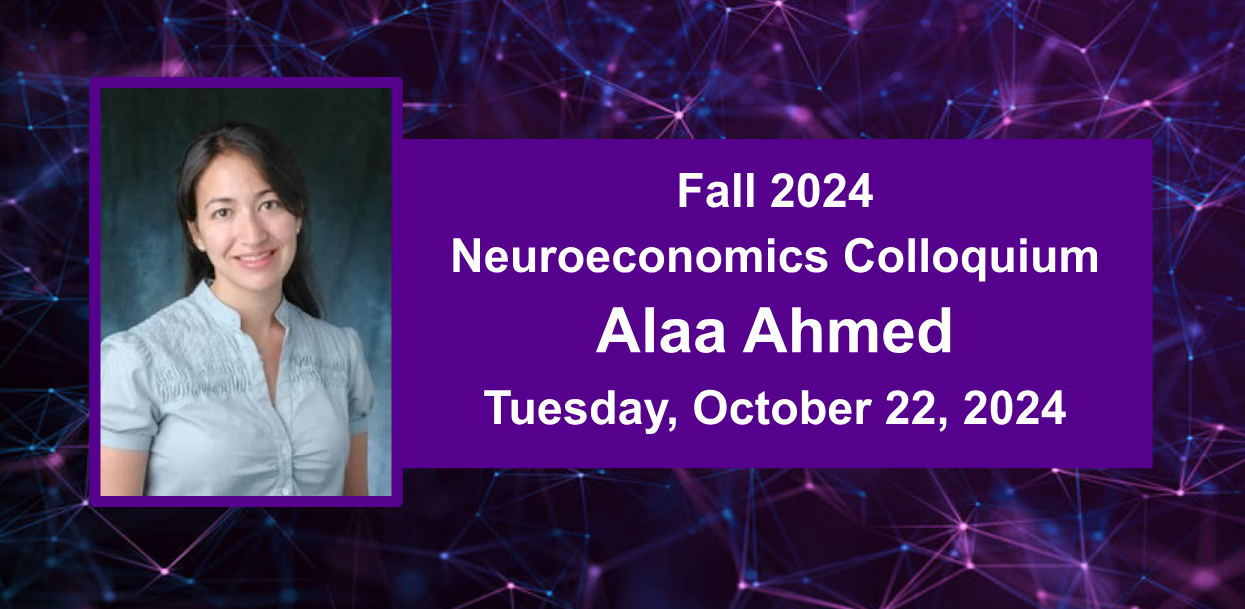
Alaa Ahmed
Alaa Ahmed
University of Colorado Boulder
“Movement slowing and rational decision making in healthy aging”
NYU Department of Economics
19 W 4th Street, Room 517
Abstract
Why do we move slower as we grow older? The brain’s choice of movement speed reflects an interaction of economic variables such as reward and effort. Reward not only biases preference, but also invigorates movement. Conversely, effort biases choice, but also slows movement. The reward circuits of the brain decline with aging, raising the possibility that movement slowing is due to the diminished value our brain assigns to movements. However, as we grow older it also becomes more effortful to make movements. Is age-related slowing principally a consequence of increased effort costs from the muscle or reduced reward valuation by the brain? In this talk, I will present a mathematical framework to disassociate between the effects of reduced reward valuation and elevated effort on movement slowing. Next, I will review a series of studies in which we measure the effort cost of movement and sensitivity of movement to reward. Together, the results suggest that slower movements in older adults may be a rational economic response the brain is making to mitigate the elevated effort costs that accompany aging.
Speaker Bio
Dr. Alaa Ahmed received a B.Sc. in Mechanical Engineering from the American University in Cairo in 1999 and a Ph.D. in Biomedical Engineering from the University of Michigan at Ann Arbor in 2005. She spent one year as an NIH post-doctoral fellow at the University of Michigan Medical School. From 2006-2008, she was a Whitaker International Fellow and post-doctoral researcher in sensorimotor control at the University of Cambridge. In 2008, she joined the University of Colorado Boulder where she is currently a professor in the Department of Mechanical Engineering, and programs in Biomedical Engineering and Robotics. Her research program uses a neuroeconomic approach that combines techniques from neuroscience, economics, psychology and engineering to investigate the costs and constraints underlying human sensorimotor decision-making, learning, and control. Dr. Ahmed is the recipient of an NSF CAREER Award and a DARPA Young Faculty Award.
